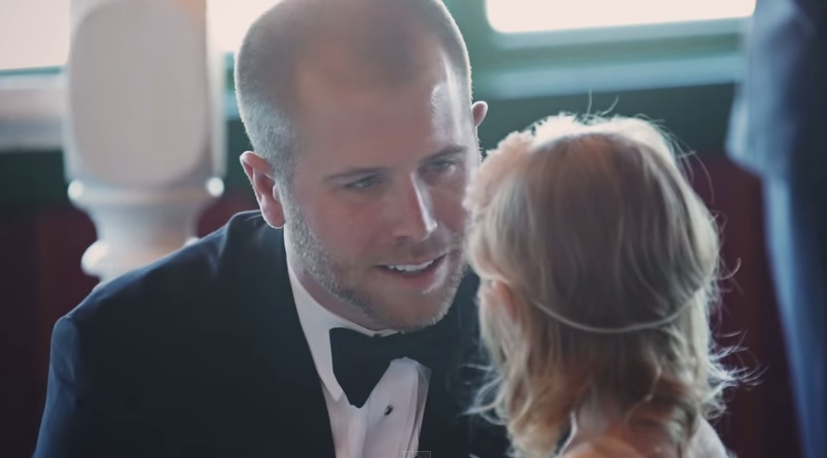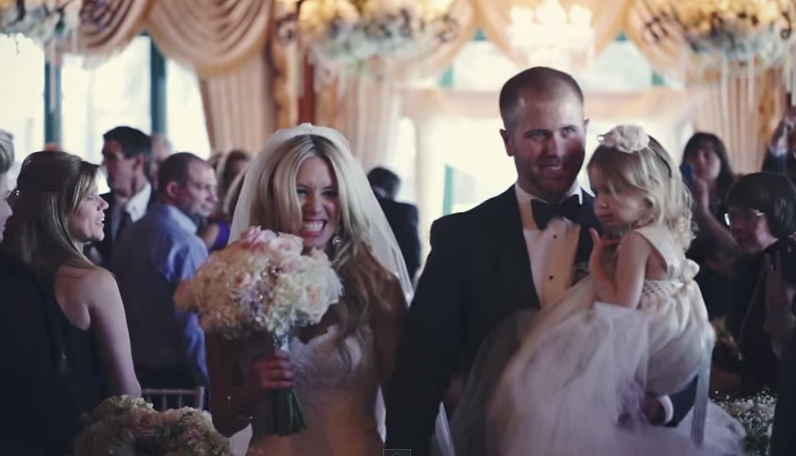Karl Pillemer has spent the last several years systematically
interviewing hundreds of older Americans to collect their lessons for
living.
Pillemer admits he's an advice junkie. He's also a Ph.D. gerontologist at Cornell University.
Some
years ago, after turning 50, he wondered whether there is something
about getting older that teaches you how to live better. "Could we look
at the oldest Americans as experts on how to live our lives?" he asked.
"And could we tap that wisdom to help us make the most of our
lifetimes?"
His first book, "
30 Lessons for Living," synthesized advice from over 1,000 elders on topics like happiness, work, and health.

Now Pillemer has followed up with "
30 Lessons for Loving,"
which features practical wisdom from over 700 older Americans with
25,000 collective years of marriage experience. One couple he profiles
was married for 76 years. Another interviewee describes divorcing her
husband, then remarrying him 64 years later.
I spoke with Pillemer for
Sophia, a HuffPost project to collect life lessons from accomplished people (that was partly inspired by his work).
Pillemer
shared seven key pieces of advice he's heard repeatedly from older
Americans -- about their greatest regrets, finding fulfillment, and
keeping relationships healthy through life's ups-and-downs.
1. Stop worrying so much.
I
asked these oldest Americans what they think people tend to regret at
their age, and what they would advise younger people to do to avoid
regrets.
I expected big-ticket items -- an affair or a shady
business deal, something along those lines. I really didn't expect to
hear the one answer that was among the most frequent and certainly among
the most passionate and vehement: stop worrying so much.
One of
the biggest regrets of the very old was, I wish I hadn't spent so much
time worrying. They weren’t talking about planning, but the kind of
mindless rumination that all of us do over things we have no control.
One
of the people who said that summed it up this way. It was a woman who
said, "I knew there were going to be layoffs at my job. I did nothing
over the coming three months except worry about being laid off. I
poisoned my life. I didn't think about anything else, even though I had
no control over it." And she paused and said, "I wish I had those three
months back, because that was just lifetime lost."

I'm
sort of a chronic Woody Allen-esque worrier. Hearing hundreds and
hundreds of older people saying that when you get to our age, you'll see
time spent needlessly worrying as time wasted, it really had a profound
effect on me.
People have asked me, "What do you do with that
insight? How do we stop worrying?" For me, when I start to get into the
mindless rumination, I will remind myself that it's an almost absolute
certainty that everybody, when they get to the end of life, will say to
themselves, "I wish I hadn't spent so much time worrying about something
that wasn't going to happen." After doing this for so long, I kind of
have this feeling of a thousand grandparents in a room yelling at me
[laughs].
A related insight of older people comes through very
strongly in their advice about marriage. Very often a lot of their
advice revolves around lightening up. We allow things, like marriage or
other domains of life, to become extremely grim.
Their viewpoint
from later on -- this may sound like a cliché, but they mean it -- is
most of the things they worried about didn't happen, and the bad things
that happened to them were things they hadn't considered.
 2. In relationships, sweat the small stuff.
2. In relationships, sweat the small stuff.
If
I learned one thing about how to keep the spark alive over many
decades, there's a point that the elders make that aligns very closely
with research. It is an emphasis on thinking small -- the small,
minute-to-minute, day-to-day interactions that make up a relationship.
We
tend to think of relationships globally. But all relationships are made
up of hundreds or thousands of daily micro-interactions where you have
the opportunity to be positive and supportive to your partner, or to be
dismissive and uninterested.
There's been research showing, for
example, that how you respond if your partner interrupts you while
you're doing something is very diagnostic of how good the relationship's
going to be. If you're actively involved in reading the paper or doing
something, and your partner wants to show you something of interest to
him or her, whether you respond dismissively or you briefly stop what
you're doing and engage with your partner is very diagnostic of
positivity in the relationship.

Other
research has shown that it takes around 10 positive interactions to
make up for one nasty one, so the ratio of positive to negative small
interactions in a relationship is really critical. And that's exactly
what older people say. Many of their lessons embody this same concept.
For
example, one of the things that older people argue is that we ought to
be polite in our relationships. You know, the old things that people
learned in elementary school, to say please and thank you and observe
normal civility, is something people forget to do all the time in their
relationships, mostly because we feel comfortable.
They argue
using politeness and tact, but also making a habit of positive things,
of compliments, of small surprises, of doing a partner's chore, if you
have a fairly rigid division of labor. Many people described that. I had
more than one woman -- perhaps it’s quote from someone else -- but they
jokingly said that their husband doing the dishes was the best
aphrodisiac they could think of. So I would say that for a good
relationship that lasts a long time, one of the absolute keys is
attending to being positive, cheerful, supportive in the small aspects
of the relationship.

Another
thing which is closely related: many couples begin to develop divergent
interests and one partner then becomes hostile to a passionate
interest. I had many older people say, "Our relationship changed when I
gave my partner's interests a chance and embraced them."
One guy
in his mid-80s, he was astonished. He said, "I started going to opera
and ballet. Me! Opera and ballet! But it was worth it to engage with my
partner." Or wives who took up golf or developed an interest in
football. At some point, people begin to say that positivity in the
relationship is more important than fighting over these kinds of like
minor differences.
People who have very positive relationships
consciously tend to maximize these small positive interactions. And that
is a place where elder wisdom completely or very closely aligns with
what we know from research about good marriages.
3. Don't sacrifice your relationship for your children.
There's
a very strong research finding in family social science. It is called
the U-shaped curve of marital happiness. Basically, marriages start out
pretty happy. Marital happiness drops precipitously at the birth of the
first child and usually never completely recovers until the last child
has left the house.
So even though kids are great -- they satisfy
our existential longings, and we love them, and it's one of the most
profound experiences -- they are stressful for marriages. You probably
don't need a social scientist to tell you that, because anybody who's
been through it knows that.
There's no question that a lot of
marital arguments and difficulties revolve around children. It's one of
the paradoxes of marriage that good things, like having kids or having a
really good job, even owning and taking care of a house, also can be
sources of marital stress. It's the double-edged sword of marriage.
The
elders had one really strong recommendation in terms of adjusting to
kids. Put your marriage first, put your relationship first, and don't
let kids distract you from having a good relationship with your partner.
Couples
lose themselves in the mix of kids and work and fundamentally abandon
attention to their relationship. The advice of the oldest Americans is
very similar to that famous instruction on airplanes -- put your own
oxygen mask on first and then put it on the kids. If you aren't
attending to your relationship, you aren't going to be very effective as
child-rearers.
It's very unusual that people have an awful
relationship and wind up being good parents. If you sacrifice your
relationship for your children, you have a reasonable chance of losing
both.

Now,
they aren't saying, of course, that you don't love your kids and that
you wouldn't hurl yourself in front of a train to save them. But they
argue that a marital relationship needs constant attention in spite of
the kids.
I was shocked, in focus groups I did in preparation for
the book, how many young parents couldn't even remember when they'd gone
out on their own or spent much individual time together. The oldest
Americans' argument is: Carve it out. Impose on grandparents. Develop a
babysitting exchange. Even if you don't have any money.
I had
people who grew up in the Depression. One couple said, "We returned our
disposable soda bottles and went to McDonald's. It was just an
opportunity to be away."
Even if it's something as artificial as a
weekly date night where you scrimp and arrange for babysitting and go
off on your own, you simply must do it. If you lose yourself in this
middle-aged blur of work and kids, you really won't do your kids any
good.
 4. People who share core values typically have better marriages.
4. People who share core values typically have better marriages.
One
hallmark of these long and harmonious marriages -- and this is a piece
of advice, too, that older people explicitly give -- is to marry someone
a lot like you.
We have in our popular culture this vast amount
of examples of where opposites attract and make for great relationships,
from “Romeo and Juliet” through “The Little Mermaid” through “Pretty
Woman” and on and on.
Both the elders and research say, not so
much. Marrying somebody who is very similar to you -- in the trade, we
call it homophily. Homophilous marriages, where the partners are pretty
similar across a range of domains, tend to last longer and be happier.
What
seems to really make the difference are core shared values. For
example, work and the importance of work, the number of children and the
way children are to be raised and goals for children, how important
money is, spiritual and religious values to some extent. If there's core
value similarity, that seems to really make for these longer and
happier marriages.
There's no magic bullet. But marrying someone
who's fundamentally similar to you, especially in outlook, worldview,
and values, really does seem to make a difference. It makes everything
else much easier.
You might ask, in our complex multicultural
society, is that really a good thing to recommend? What they would say
is, you can have differences. Sometimes differences do spice up a
relationship. But if you have two people who are, for example, strongly
committed to two different religious traditions, you've got to be aware
that you're going to have to work around that in your relationship. If
you have other kinds of strong value differences, it's important to be
aware of those and deal with them.
 5. Communicate early, communicate often.
5. Communicate early, communicate often.
I've
spent a lot of time interviewing young people. Of course, I'm speaking
anecdotally. I know a lot of them as a college professor. One thing I've
learned is that even in long dating relationships, it’s actually
relatively unusual that they have a deep discussion about child-rearing
values or even having children.
I think that's a problem. I think
the elders would say it's a problem. Understanding how your values align
is very important early on.
This is related, and it may seem
obvious, but virtually all of the elders in long marriages say the key
to their success was learning how to communicate effectively on
important issues.
People who were divorced very typically
attribute it to a communication breakdown. I had several couples in the
study who had gotten divorced and then remarried. One couple was
actually remarried almost a half century after they were first divorced
and began to have a very positive relationship. Almost always that was
attributed to learning how to open up, to have open and successful
communication and to really talk to one another.
6. Approach marriage as a discipline.
The unspoken, unquestioned, and underlying assumption, especially of people 75 and older, was that marriage would last forever.
They
viewed marriage as an unbreakable bond; they simply had to work within
those parameters. That means, for example, you live through rough
patches and don't just try to get out of the relationship. You come to
accommodations and acceptances of the other person. You see this unit as
something that is bigger than two people and their immediate individual
satisfaction.
When they got married, they were making a
commitment to the concept of marriage as a worthwhile institution,
rather than the partnership based on immediate satisfaction of the
individuals involved.
I got from them the idea of marriage as a
discipline -- not a punishment kind of discipline but the way it's used
if you're learning music or a martial art. Marriage is a lifelong path,
one that you never perfect and that you continually work to get better
at. You're continually working to improve communication and overcome
problems and establish more interest.
This worldview -- that once
you were in marriage, you were in it for good -- shaped people's
day-to-day experience and view of it. It's one of the things which those
who do articulate it recommend to younger people. They say, even if the
reality is that you may not stay married, you ought to have this
attitude, because it will make you work harder to get through difficult
times. And there are such benefits to doing that that you ought to do
it.
 7. Take time to craft the story of your life.
7. Take time to craft the story of your life.
There's
been considerable research on the importance of reminiscence, life
review. Most old people would like to be able to see their lives as a
meaningful whole, to be able to sum it up into a coherent narrative.
I
don't want to wax too poetic, but I have really been struck by
something which the famous psychologist Erik Erikson said. At some point
you realize that you're given this one chance -- he words it this way
-- ‘this one chance in all of eternity to enact an identity and to play
it out in the real world.’
Towards the end of life, what's really
important to people is to be able to see how their life mattered, how it
was meaningful, how there was a story to it that wraps up in a good
way.
People who are able to create that kind of narrative, and
think of their life in that way, are typically happier. They're more
generative. They're much more serene and open to the end of life. So
that is really good work for people to do. Writing about it is something
that a number of my interviewees did. Often my best interviewees were
people who had done some writing of memoirs.
There is a concept which some of them also did, it's called the “
ethical will,”
where people will write down what they would like to leave to younger
generations about their values and principles and morality, how someone
should live a life.

It's
so critical for older people to record their memories. I would go one
step further. Stop me if -- actually, I'm going to go ahead and say it.
We're in the midst right now in our society of a very dangerous
experiment. That's one where young people, outside of intermittent
contacts in their own family, have no meaningful contact with older
people in any other dimension of their lives.
Whereas old people
were often much more integrated and were sought out as sources of wisdom
and advice and life experience, now they really aren't, because our
society is so age-segregated.
I think that we place young people
in peril without these kind of intergenerational contacts. This is
something that's so natural for the human race. It's really only been
about the last hundred years that people have gone to anyone other than
the oldest person they knew for advice about something, say like
marriage or child-rearing.
Even though it sounds artificial, it's
important for older people to record their own thoughts and memories,
but it's really critical for younger people to ask them for them, and
not just for stories, but for guidance and practical advice for living.
I'm not against professional help. I think it's great. But sometimes
people might go and ask the elders in their lives for advice on finding a
meaningful career or improving a relationship first.
So I think
that it's both older people doing it themselves, nurturing these
memories and reflecting on their lives, but it's also our role as
younger people to help them to do it, to express interest in it and be a
part of their reminiscing and summing up their life into a meaningful
story. That's what we really risk losing now. It's a large reason for
these projects, I have to say, and why I'm writing these books.



















 Now Pillemer has followed up with "
Now Pillemer has followed up with "



























